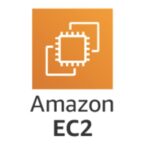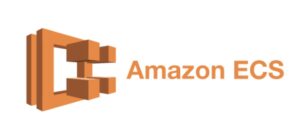
EC2 vs ECS vs Bare Metal: Which Infrastructure Solution is Right for You?
At HorizonIQ, our customers often face the challenge of selecting the right infrastructure for various workloads and applications. Balancing scalability, performance, control, and cost is no easy task. In my experience, Amazon EC2, Amazon ECS, and bare metal servers each have distinct advantages and are highly dependent on the specific needs of your application.
In this article, I’ll share insights on EC2 vs ECS vs bare metal to help you make an informed decision based on real-world use cases.
What is Amazon EC2?

Amazon EC2, or elastic cloud compute, is a cloud service that provides resizable compute capacity in the public cloud. It allows you to run virtual machines (VMs) with a variety of configurations, operating systems, and software packages. EC2 has a pay-as-you-go billing model. It is ideal for users who need flexibility and control over their computing environment.
EC2 Advantages
- Scalability: EC2 instances can be scaled up or down based on demand, making it an excellent choice for applications with variable workloads.
- Flexibility: You can choose from a wide range of instance types, operating systems, and network configurations to match your specific needs.
- Integration: EC2 integrates seamlessly with other AWS services, such as S3, RDS, and VPC, providing a comprehensive cloud ecosystem.
Amazon EC2 Disadvantages
- Management Overhead: You are responsible for managing the operating system, security patches, and updates, which can be time-consuming.
- Performance Overhead: Virtualization introduces a slight performance overhead compared to bare metal, which might be a concern for latency-sensitive applications.
- Complexity: Managing a fleet of EC2 instances can become complex, especially in large-scale environments.
- Unpredictable Costs: Although AWS offers solutions to provide cost-saving opportunities, EC2’s on-demand nature often means unpredictable costs month over month. Furthermore, for large deployments, costs can be significantly higher compared to bare metal.
Best Use Cases for Amazon EC2
- Web Applications: EC2 is perfect for hosting web servers and application servers.
- Development and Testing: Developers can easily create, modify, and destroy environments as needed.
- Big Data: EC2 is suitable for running big data processing frameworks like Hadoop.
- Custom Applications: Deploy custom applications with high configurability, including security, data protection, and networking rules.
- Elastic Scaling: Define minimum, desired, and maximum capacities or use auto-scaling groups to govern application resource utilization.
What is Amazon ECS?

Amazon ECS is a fully managed container orchestration service that allows you to run Docker containers on a cluster of EC2 instances. In this sense, ECS is a companion service to EC2. ECS abstracts much of the complexity involved in managing containers, making it easier to deploy, manage, and scale containerized applications.
ECS Advantages
- Simplified Deployment: ECS handles the orchestration, scheduling, and scaling of containers, reducing the operational burden.
- Integration with AWS Services: ECS integrates well with other AWS services like IAM, CloudWatch, and ALB, making it easier to manage and monitor your containerized applications.
- Flexibility in Deployment Models: ECS supports both EC2 (self-managed infrastructure) and Fargate (serverless) deployment models, giving you the choice of how much control you want over your infrastructure.
- Cost-Efficiency: With the Fargate launch type, you only pay for the compute resources that your containers use, eliminating the need to manage and pay for EC2 instances directly.
Amazon ECS Disadvantages
- Learning Curve: While ECS simplifies container management, there is still a learning curve, especially if you are new to containerization.
- Limited Customization: With Fargate, you have less control over the underlying infrastructure, which might be a drawback for highly specialized environments.
- Vendor Lock-In: Using ECS tightly integrates you into the AWS ecosystem, which might be a concern for those wanting to maintain multi-cloud or on-premise flexibility.
Best Use Cases for Amazon ECS
- Microservices Architectures: ECS is ideal for deploying and managing microservices.
- CI/CD Pipelines: Containers streamline development and deployment processes, making ECS a great choice for CI/CD.
- Batch Processing: ECS can efficiently manage and scale batch processing jobs.
- Containerized Applications: Deploy Docker containers without the need for Kubernetes as an orchestration layer.
- Hybrid Environments: Use ECS to manage containers across multiple cloud environments with Amazon ECS Anywhere.
Scaling: Vertically vs. Horizontally
When comparing EC2 and ECS, it’s important to understand their scaling strategies:
- Scaling Vertically (EC2): Adds additional computing power to an existing instance or node, increasing the availability of resources but making applications dependent on a single node or cluster group.
- Scaling Horizontally (ECS): Adds new instances or nodes, spreading service dependency across multiple instances. This reduces the risk of single points of failure but introduces more complexity in management.
What are Bare Metal Servers?

Bare metal servers refer to physical servers that are dedicated entirely to a single tenant. Unlike virtualized environments, bare metal provides direct access to the hardware, offering maximum performance and control.
Bare Metal Advantages
- Performance: With no virtualization overhead, bare metal provides the highest level of performance, which is crucial for high-performance computing (HPC), gaming servers, and large-scale databases.
- Control: You have complete control over the hardware, operating system, and software stack, allowing for deep customization.
- Security: Since bare metal servers are not shared with other tenants, they offer a higher level of isolation, which can enhance security.
- Predictable Costs: Bare metal servers typically involve predictable, flat-rate pricing, making it easier to budget for long-term projects.
- Managed Service Options: Providers like HorizonIQ offer managed bare metal solutions which dramatically reduces overhead for your teams.
Bare Metal Disadvantages
- Scalability: Scaling bare metal servers requires provisioning new hardware. At HorizonIQ, we have developed a solution to minimize provisioning time, allowing you to scale your infrastructure when needed.
- Management Overhead: In an unmanaged environment you are responsible for the entire stack, from hardware management to software updates and security patches. As mentioned above, HorizonIQ offers managed bare metal to overcome this issue.
Best Use Cases for Bare Metal
- High-Performance Applications: Applications that demand maximum performance, such as databases, HPC, and gaming servers, benefit from bare metal.
- Compliance Requirements: Industries with strict compliance and regulatory requirements may prefer the isolation and control of bare metal.
- Long-Term Projects: For projects with a long lifespan and stable workloads, bare metal can be more cost-effective in the long run.
Which One Should You Choose?
The choice between Amazon EC2, Amazon ECS, and bare metal boils down to your specific requirements and constraints:
Choose EC2 if you need flexibility, scalability, and integration with a broad range of AWS services. It’s a great choice for many applications, from web hosting to big data processing.
Choose ECS if you are moving towards a containerized architecture and want to simplify container management while benefiting from tight integration with AWS services.
Choose Bare Metal if you need the highest possible performance, control, and security—or if you are dealing with compliance requirements that necessitate dedicated hardware.
Each option has its strengths, and the best choice will depend on your application’s performance requirements, management preferences, and budget. By understanding the trade-offs between these options, you can make a more informed decision that aligns with your business goals.
Ready to get the most performance and control for your applications? Explore HorizonIQ bare metal.



